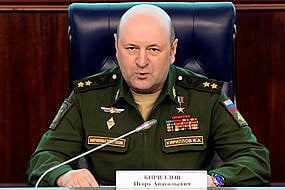The German parliament has backed a no-confidence motion in Chancellor Olaf Scholz's government, paving the way for a snap election on February 23rd.
Here are the main parties contending, their poll standings, and the key policy issues.
Parties
Germany has two centrist, "big tent" parties: Scholz's centre-left Social Democrats (SPD) and the opposition conservatives, an alliance of the Christian Democrats (CDU) and their Bavarian sister party the Christian Social Union (CSU).
However, they have both lost support in recent years, with smaller parties such as the environmental Greens and far-right Alternative for Germany (AfD) gaining ground.

The SPD, conservatives, Greens and AfD are all fielding candidates for chancellor.
Also running are the pro-market Free Democrats (FDP), the far-left Linke and the leftist Sahra Wagenknecht Alliance (BSW), who are all at risk of missing the 5 per cent threshold to make it into parliament, according to opinion polls.
Polls
The conservatives have been leading nationwide polls for more than two years and are at 31 per cent, according to the latest survey published by INSA, followed by the AfD on 20 per cent.
Scholz's SPD has dropped to third from first place in the 2021 election, with 17 per cent, followed by the Greens on 11 per cent and the BSW on 8 per cent. The FDP and Left party are polling at 5 and 3 per cent respectively.
However, analysts say polls can shift quickly, with voters less loyal to parties than they once were, recalling the 2021 election campaign when the conservatives went from frontrunner to runner-up within a few months.
The conservatives' leader Friedrich Merz, in particular, is considered to be prone to gaffes and quick to anger.
Policy debates
Ukraine
Germany's mainstream parties are all in favour of helping Ukraine fend off Russia's full-scale invasion, while the AfD and BSW want an end to weapons deliveries to Kyiv and a resumption of good relations with Moscow.
However, Scholz and his SPD have recently struck a more cautious tone - emphasising the need for diplomacy and prudence - than the conservatives, Greens and FDP, who are for example all in favour of Germany delivering long-range Taurus missiles.
Reviving the economy
Scholz has proposed incentivising private investment and modernising infrastructure with an off-budget €100 billion fund. His Social Democrats also plan to introduce a "Made in Germany" premium to boost investment. The plan includes a direct tax refund of 10 per cent on equipment investments by businesses.
The SPD also plans to incentivise purchases of German-made electric cars with a temporary tax deduction offered to buyers.
Economy minister Robert Habeck, the Greens' candidate for chancellor, has like Scholz called for reform of the constitutionally enshrined debt brake to allow for higher public spending.
Merz had also signalled some openness to a moderate reform of the debt brake but his party's manifesto has pledged to retain it. The AfD and the FDP are fierce defenders of the limit on public borrowing.

The CDU/CSU manifesto has also proposed extensive financial relief for companies and citizens, including income and corporate tax cuts, and lower electricity charges. They have not said how these would be financed.
The AfD seeks Germany's departure from the EU – or "Dexit" – and also wants the country to ditch the euro and reintroduce the Deutsche Mark.
Migration
The anti-Islam, anti-migration AfD has called for borders to be closed and asylum seekers to no longer have the right to family reunification. Some senior members have gone further in their comments and were present at discussions among far-right activists on deporting millions of people of foreign origin, including German citizens.
The conservatives have adopted a much stricter stance on immigration in recent years, advocating for pushing back asylum seekers at the borders, while calling for limits on family reunifications and naturalization for refugees.
They also want everyone applying for asylum in Europe to be transferred to a safe third country for processing their claims.
The SPD has also toughened its position by enforcing stricter border controls and accelerating deportations, although it also wants to bring in more foreign skilled workers.

In contrast, the Greens maintain a more open asylum policy, promoting state-backed sea rescue initiatives and simplifying family reunification processes and enhancing integration.
Energy
High energy prices remain a major challenge for households and businesses in Germany and an important election campaign topic.
The CDU, SPD and Greens agree on expanding renewable energy to reduce costs but differ on financing approaches: the CDU suggests using higher CO2 certificate revenues to lower network fees, while the SPD and Greens support debt-financed state subsidies. The CDU and AfD also propose assessing a return to nuclear power, an idea rejected by the SPD and Greens.
The AfD opposes renewable energy subsidies entirely, advocating for unrestricted coal-fired power plant operations and abolishing CO2 pricing to lower consumer costs and enhance energy security.







